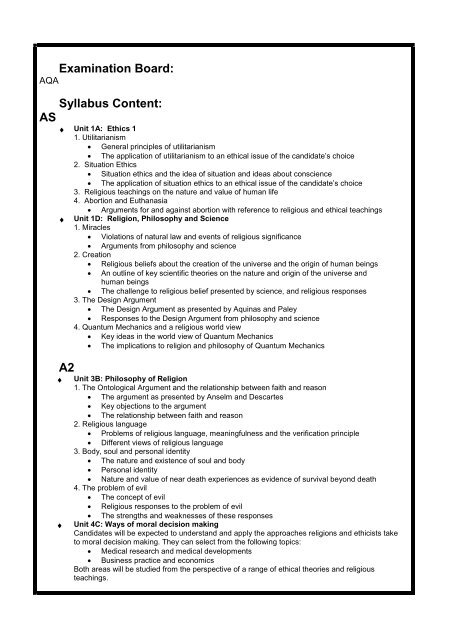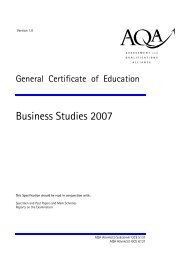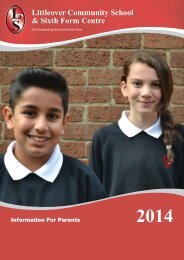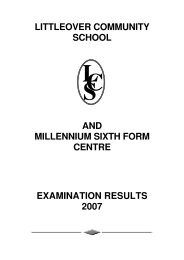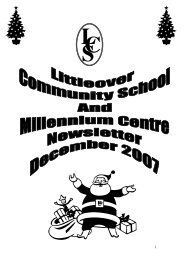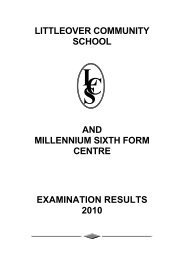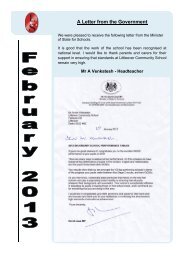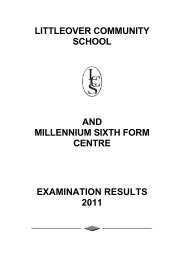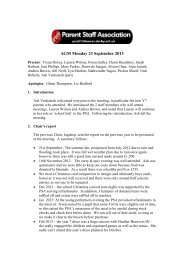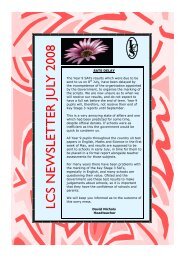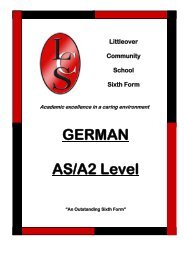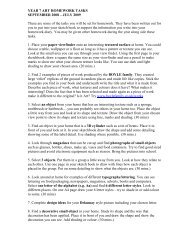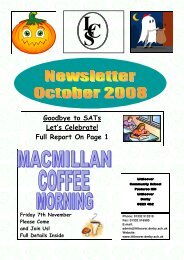Philosophy & Ethics (Religious Studies) - Littleover Community School
Philosophy & Ethics (Religious Studies) - Littleover Community School
Philosophy & Ethics (Religious Studies) - Littleover Community School
Create successful ePaper yourself
Turn your PDF publications into a flip-book with our unique Google optimized e-Paper software.
Examination Board:<br />
AQA<br />
Syllabus Content:<br />
AS<br />
Unit 1A: <strong>Ethics</strong> 1<br />
1. Utilitarianism<br />
General principles of utilitarianism<br />
The application of utilitarianism to an ethical issue of the candidate’s choice<br />
2. Situation <strong>Ethics</strong><br />
Situation ethics and the idea of situation and ideas about conscience<br />
The application of situation ethics to an ethical issue of the candidate’s choice<br />
3. <strong>Religious</strong> teachings on the nature and value of human life<br />
4. Abortion and Euthanasia<br />
Arguments for and against abortion with reference to religious and ethical teachings<br />
Unit 1D: Religion, <strong>Philosophy</strong> and Science<br />
1. Miracles<br />
Violations of natural law and events of religious significance<br />
Arguments from philosophy and science<br />
2. Creation<br />
<strong>Religious</strong> beliefs about the creation of the universe and the origin of human beings<br />
An outline of key scientific theories on the nature and origin of the universe and<br />
human beings<br />
The challenge to religious belief presented by science, and religious responses<br />
3. The Design Argument<br />
The Design Argument as presented by Aquinas and Paley<br />
Responses to the Design Argument from philosophy and science<br />
4. Quantum Mechanics and a religious world view<br />
Key ideas in the world view of Quantum Mechanics<br />
The implications to religion and philosophy of Quantum Mechanics<br />
A2<br />
<br />
<br />
Unit 3B: <strong>Philosophy</strong> of Religion<br />
1. The Ontological Argument and the relationship between faith and reason<br />
The argument as presented by Anselm and Descartes<br />
Key objections to the argument<br />
The relationship between faith and reason<br />
2. <strong>Religious</strong> language<br />
Problems of religious language, meaningfulness and the verification principle<br />
Different views of religious language<br />
3. Body, soul and personal identity<br />
The nature and existence of soul and body<br />
Personal identity<br />
Nature and value of near death experiences as evidence of survival beyond death<br />
4. The problem of evil<br />
The concept of evil<br />
<strong>Religious</strong> responses to the problem of evil<br />
The strengths and weaknesses of these responses<br />
Unit 4C: Ways of moral decision making<br />
Candidates will be expected to understand and apply the approaches religions and ethicists take<br />
to moral decision making. They can select from the following topics:<br />
Medical research and medical developments<br />
Business practice and economics<br />
Both areas will be studied from the perspective of a range of ethical theories and religious<br />
teachings.


